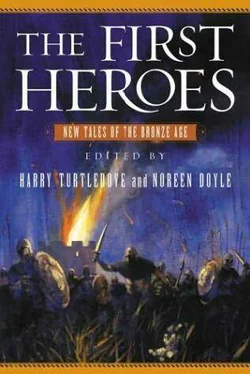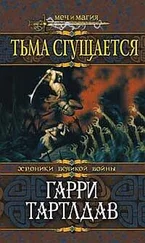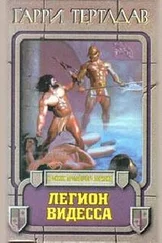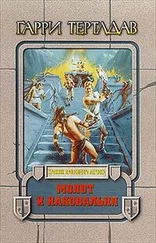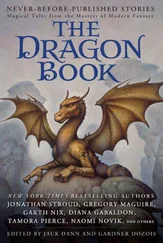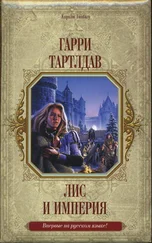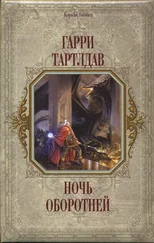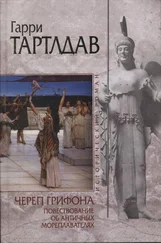Гарри Тертлдав - The First Heroes
Здесь есть возможность читать онлайн «Гарри Тертлдав - The First Heroes» весь текст электронной книги совершенно бесплатно (целиком полную версию без сокращений). В некоторых случаях можно слушать аудио, скачать через торрент в формате fb2 и присутствует краткое содержание. Жанр: Фантастика и фэнтези, на английском языке. Описание произведения, (предисловие) а так же отзывы посетителей доступны на портале библиотеки ЛибКат.
- Название:The First Heroes
- Автор:
- Жанр:
- Год:неизвестен
- ISBN:нет данных
- Рейтинг книги:3 / 5. Голосов: 1
-
Избранное:Добавить в избранное
- Отзывы:
-
Ваша оценка:
- 60
- 1
- 2
- 3
- 4
- 5
The First Heroes: краткое содержание, описание и аннотация
Предлагаем к чтению аннотацию, описание, краткое содержание или предисловие (зависит от того, что написал сам автор книги «The First Heroes»). Если вы не нашли необходимую информацию о книге — напишите в комментариях, мы постараемся отыскать её.
The First Heroes — читать онлайн бесплатно полную книгу (весь текст) целиком
Ниже представлен текст книги, разбитый по страницам. Система сохранения места последней прочитанной страницы, позволяет с удобством читать онлайн бесплатно книгу «The First Heroes», без необходимости каждый раз заново искать на чём Вы остановились. Поставьте закладку, и сможете в любой момент перейти на страницу, на которой закончили чтение.
Интервал:
Закладка:
"You are all that is left of the family in your generation," my father said. "For the sake of the whole clan, you must marry, and to the right husband."
"To a strong husband," my mother said, and they began the argument anew as though I had never spoken. I gave up my thoughts of entering the god's service and resigned myself to marriage. I could only pray that I would find the man pleasing—or at least, pleasing enough.
I had no lack of suitors. More than one man found the thought of ruling Latium through me desirable. But my father cared for none of them, dismissing one man as too weak and another as too prone, like Metabus, to feuds and quarrels, and yet a third as unkind to his horse, until I began to think that no one could please him. My mother, on the other hand, cared for only one of my prospective husbands; from the beginning, with her, it was Turnus.
I never completely understood why she was so intent on the marriage—they were distant kin and much of an age, but the same could have been said of half my suitors. She told me that they had played together as toddlers, and perhaps that had some influence. When I once said, in a fit of impatience, that if she loved Turnus so much she could marry him herself, she grew red and slapped me in the face.
Still my father fretted and delayed, while I grew older and left childhood behind completely.
"She's ripe for marriage," Turnus said to my mother one day. "Latinus will have to see it now."
"I'll speak to him again," Amata said. "He's put off making a decision for long enough."
She never had the chance. The third of my life's omens came that night, when Latinus had a dream. He told us all about it in the morning—Grandfather Faunus had spoken to him, he said, and had advised him that I should not marry Turnus or any other man from Latium, but should take a foreigner for a husband.
Turnus left our house in anger, and my mother sulked for a week. For my part, I was grateful to Grandfather Faunus. Foreigners were rare, and it stood to reason that foreigners in search of wives must be rarer still.
Then Aeneas came, and the men from Wilion with him.
Not for a long time did I understand why Grandfather Faunus spoke to my father as he did. The men from Wilion had a destiny, they said, a command from their gods to make a new homeland in this place where our people were already living, and they were men hardened by long years of wandering. If we could not drive them away by force, perhaps it was better to draw them in. Aeneas would rule Latium through me, and through me the line of Latinus would continue.
Such, at least, my father must have hoped. My mother saw things otherwise, and who can say, now, that she was not right all along? Because it came in the end to war despite his efforts, and the destruction of the world of my childhood—even Camilla, whose service to Diana should have kept her away from such things, died on a battlefield before it was done. But you know all this, and what matters is that the men from Wilion prevailed. Aeneas killed Turnus, and my mother hanged herself in rage and shame, and I was dragged forth from hiding to marry the foreign invader, whether I wanted him or not.
I had not wanted Aeneas, any more than I had wanted Turnus or any of the other, lesser men whom my father had sent away, but I found marriage to him less of a burden than I had feared. He was kind, and he saw to it that the men from Wilion treated me with respect and honor, as the one through whom the rule of Latium had come into his hands. His son Askanios did not like me—Aeneas's first wife had died when Wilion fell, and, since Askanios could not truly remember her, he had made her perfect in his mind, and a stepmother could never equal perfection—but the young man's love for his father was strong enough that he was respectful to me for Aeneas's sake.
At first, when my husband did not come to me in the marriage-bed, I thought it was yet another of his acts of kindness—for he could be kind, when thoughts of the Fates and his destiny were not oppressing him. The brutal war, and the sudden unexpected horror of my mother's death, had left me easily frightened and prone to nightmares. For a long time, I do not think I could have made myself lie quiet and accepting underneath any man, let alone the killer of Turnus—whom my mother had, perhaps, loved as more than just an old playmate and distant kin. It was good of my husband, or so I thought, to give me the time I needed in which to heal.
The healing came slowly, but it came. I do not think I would ever have come to enjoy lying with a man, but with Aeneas, who was always gentle to me, I could have learned to tolerate it, and perhaps to give him pleasure even if I found none. And in time there would have been children, which I had begun to want a great deal. Children of Aeneas, out of my body, would carry out my father's old hopes for Latium, and at the same time would bring my own life full circle, creating anew the family grouping of my early childhood.
The Fates who had so beset Aeneas must have found me amusing as well: now that I was, finally, ready for my husband, it seemed that my husband was not ready for me. I waited patiently, supposing that his difficult life had left him with ghosts and nightmares of his own, but the months went past and still he did not approach me. I decided at last that patient waiting had failed, and that—since I lacked the talent and the knowledge for seduction—nothing was left but to ask outright.
I waited until a morning when Askanios was away, and Aeneas and I, except for the servants, were alone. We had taken our morning meal in the courtyard, in the shade of the olive tree, and had talked of everyday matters, the summer weather and the health of the crops and whether the household would need to trade for anything before winter came. When he finished the last of the bread and rose to go, I stopped him.
"Husband," I said. "There is another thing."
His brows drew together in a worried frown. "Is there trouble again with the clans?" He had come to rely on me, since we were married, to keep him informed about their shifting feuds and alliances. No man not born to Latium could keep them unentangled in his mind.
"No," I said. "This concerns the two of us alone." I took a deep breath, and knotted my hands together in my lap. "Aeneas, when will you give me a child?"
He became very still, as a man does who spies an adder coiled beneath his descending foot.
"Lawinia," he said. "I thought that you understood."
The day was hot and bright, but I felt suddenly cold. "What was it that I was supposed to understand?"
"This marriage," he said. "How it would have to be."
"No. I don't understand." I began to feel a new emotion stirring in me, one that I was unaccustomed to feeling—the deep, bitter anger that comes from loving and from being betrayed.
"Explain it to me."
Say whatever else you want about Aeneas the son of Anchises, but he was a man honest enough to speak the full truth when it was demanded of him, even though he knew the telling would destroy whatever harmony had grown up between us.
"Everything I have done," he said, "from the burning of Wilion until this moment, I have done because the gods desired it and commanded me. They intended this homeland in Latium to be for Askanios and his progeny; I will not go against their will by giving him younger brothers whose claim through you is greater than his own."
That was the start of our quarrel, and the sum of it, though it lasted longer and grew worse. In the end I left him, running from the house in the wildness of my anger, not caring who if anyone might follow. I took the winding path to the cliff above the ocean. There, in the solitude of the high place, I unbound my hair and lifted up my hands to pray to the god who had marked me once in the cave at Cumae.
Читать дальшеИнтервал:
Закладка:
Похожие книги на «The First Heroes»
Представляем Вашему вниманию похожие книги на «The First Heroes» списком для выбора. Мы отобрали схожую по названию и смыслу литературу в надежде предоставить читателям больше вариантов отыскать новые, интересные, ещё непрочитанные произведения.
Обсуждение, отзывы о книге «The First Heroes» и просто собственные мнения читателей. Оставьте ваши комментарии, напишите, что Вы думаете о произведении, его смысле или главных героях. Укажите что конкретно понравилось, а что нет, и почему Вы так считаете.
